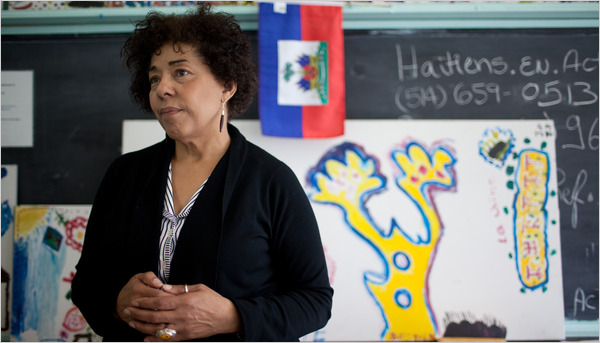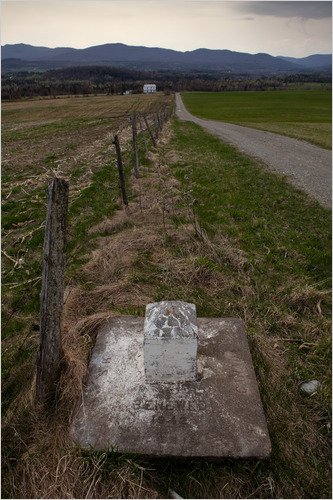| Want to send this page or a link to a friend? Click on mail at the top of this window. |
More Special Reports |
| A SPECIAL SECTION: Haiti since the January 12, 2010 Earthquake |
| Posted May 17, 2010 |
| National |
|
A Haitian Influx Startles the North Country |
|
|
|
|
 |
|
|
NATTHEW CAVANAUGH FOR THE NEW YORK TIMES |
|
| Marjorie Villebranche of the community center Maison d'Haiti in Montreal helps advise Haitians living in Canada. |
|
By KATIE ZEZIMA |
|
|
|
THE NEW YORK TIMES |
| The northern Vermont border has tempted some Haitians. |
 |
|
MATTHEW CAVANAUGH FOR THE NEW YORK TIMES |
| In north Troy, VT., a granite maker designate the border of Canada and the U.S. |
| Wehaitians.com, the scholarly journal of democracy and human rights |
| More from wehaitians.com |